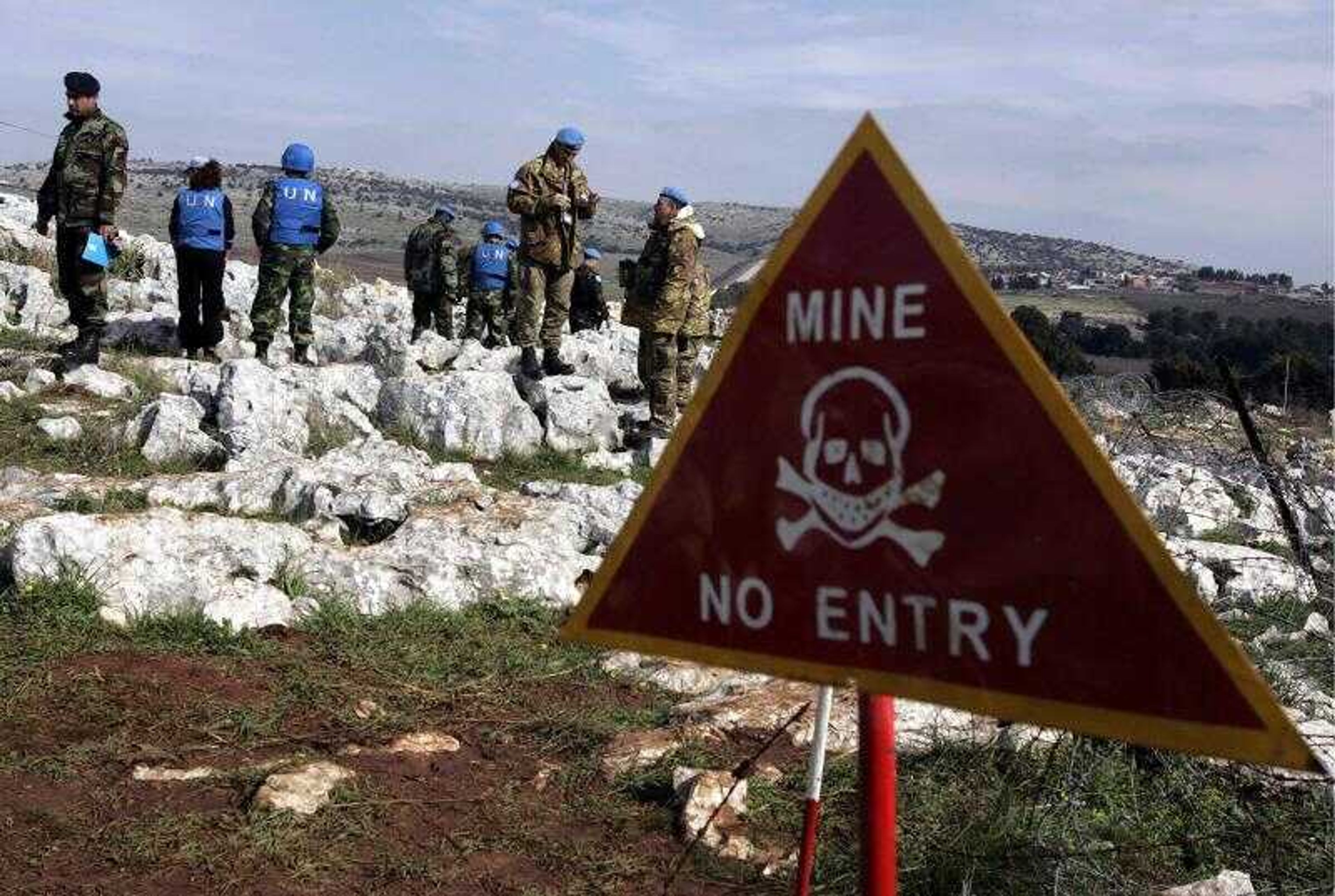U.N. tries to determine responsibility for Lebanon-Israeli border shootout
MAROUN EL-RASS, Lebanon -- U.N. troops sent tanks and armor Thursday to a tense area along the frontier with Israel to try to determine whether an Israeli bulldozer crossed into Lebanon, sparking the first shootout since last summer's Hezbollah-Israel war...
MAROUN EL-RASS, Lebanon -- U.N. troops sent tanks and armor Thursday to a tense area along the frontier with Israel to try to determine whether an Israeli bulldozer crossed into Lebanon, sparking the first shootout since last summer's Hezbollah-Israel war.
The brief exchange of fire Wednesday night was the first involving Lebanese troops and the Israelis since the Lebanese army deployed in September to southern Lebanon to work alongside international peacekeepers.
In New York, U.N. Secretary-General Ban Ki-moon expressed deep concern at the shootout and called on all parties to "exercise maximum restraint" so as not to "endanger the fragile calm that prevails in southern Lebanon," U.N. spokeswoman Michele Montas said.
Lebanese officials said their troops fired on an Israeli army bulldozer that had crossed the border near the village of Maroun el-Rass, scene of heavy fighting in the summer. The bulldozer crossed the so-called Blue Line -- the U.N.-demarcated boundary -- and drove about 45 feet into Lebanon, Lebanese military officials said.
No casualties
Israel said the shooting lasted for a few minutes and maintained its army acted inside its own territory. There were no casualties.
"We have a strong interest in keeping a quiet border, but we will not allow violations of our territorial sovereignty," warned Israeli government spokeswoman Miri Eisin.
Lebanese President Emile Lahoud lauded the army's action in opening fire at the Israelis, while Prime Minister Fuad Saniora told U.N. envoy Geir Pedersen the bulldozer's incursion compounded the daily violations of Lebanese sovereignty by Israeli aircraft flying over the country.
Despite the stern rhetoric, the incident was not expected to undermine the cease-fire that has held since Aug. 14.
Still, the U.N. Interim Force in Lebanon described the clash as a "serious incident" and sent two French Leclerc battle tanks and at least four armored personnel carriers to the area outside Maroun el-Rass.
More armored vehicles patrolled a dirt road next to the Israeli border fence, leaving a trail of mud through a lush green valley. A white U.N. helicopter flew overhead.
"Our people deployed ... so that everybody can see peacekeepers are taking care of the area," Lt.-Col. Michael Busching, a German naval officer with UNIFIL's military Public Information Office, told The Associated Press at the scene.
Liam McDowell, a spokesman for the U.N. Interim Force in Lebanon, said the exchange was "initiated by the Lebanese army" and that the Israeli bulldozer had crossed the "technical fence" to clear mines.
Crossing the technical fence would not violate the border, but crossing the Blue Line would. The U.N. drew up the line when Israeli forces ended their 18-year occupation of a slice of southern Lebanon in 2000.
McDowell said UNIFIL was assessing whether Israeli troops had crossed the Blue Line.
Israel said its troops went through the fence to search for explosives allegedly planted by Hezbollah on Monday, but that Israeli forces remained south of the international border and within Israeli territory -- which stretches beyond the fence.
Hezbollah has denied planting explosives, saying they were laid before the war.
The Lebanese army said Thursday that the bulldozer was backed by tanks and armored carriers, with Israeli helicopters flying overhead, as it moved soil to clear terrain "under the pretext of removing explosives."
It said the Israelis responded, firing on a Lebanese army position inside Lebanese territory and damaging an armored personnel carrier but causing no casualties.
The Israeli military carried out two overflights early Thursday over Lebanon, which it says are needed to monitor whether Hezbollah is being rearmed in violation of the cease-fire.
French officers, joined by a Lebanese liaison officer, would not speak to journalists Thursday, but were overheard saying the Blue Line was not visibly marked in the area.
About 100 yards on the other side, another U.N. team worked with an Israeli officer.
For a complete survey, the teams would have to retrace the bulldozer's path, which is fenced off by razor wire because it is believed to contain mines and other explosives. Chinese de-mining troops were brought later Thursday to stage controlled explosions to clear the path.
Meanwhile, the bulldozer in question was idle, parked inside Israeli territory. Freshly turned soil was visible outside the "technical fence."
In the hilltop village of Maroun el-Rass, which Israeli troops fought their way into during the 34-day war, many houses were destroyed or pockmarked with shell and gunfire from the summer fighting.
"I'm not afraid," Suleiman Karnib, 31, said as he puffed a cigarette inside a grocery stored. Even if it were so, "where would I go?"
Connect with the Southeast Missourian Newsroom:
For corrections to this story or other insights for the editor, click here. To submit a letter to the editor, click here. To learn about the Southeast Missourian’s AI Policy, click here.









